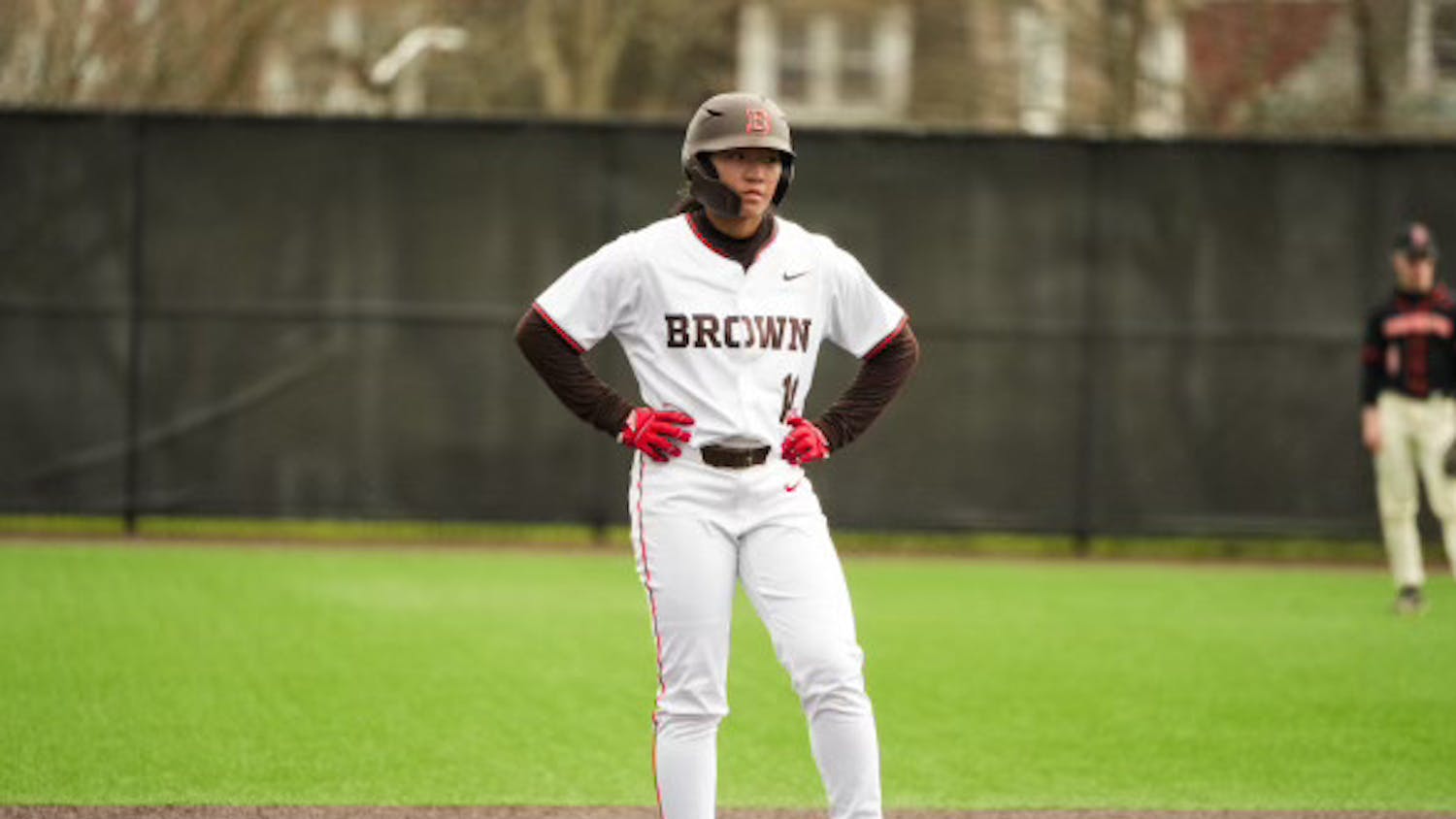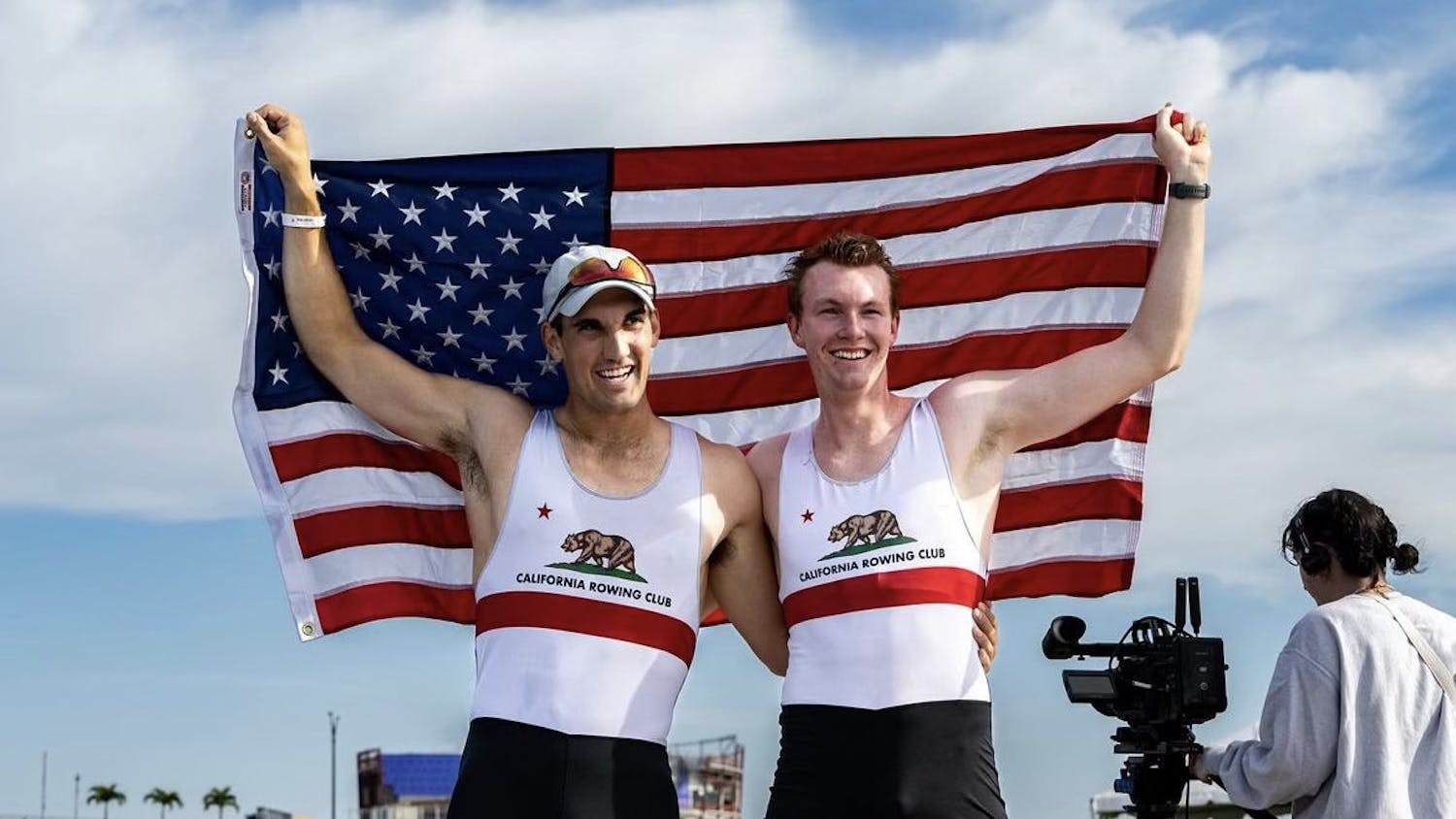There is not a single rugby player in this world that has not been yelled at by his ten. Not setting a proper platform for the kick? Trying to run a pick when the call is to get the ball out? Generally doing anything that is not helpful to what the flyhalf wants to do in that moment? Breathing in a space where your ten is upset? It can make you wonder how Dawit Workie ’17 ever ended up at flyhalf.
“I’m a pretty timid guy,” Workie said. “I’m shy at first. I try to be as understanding as possible and am definitely not too dominant in social situations. I don’t really put myself out there.”
Workie, a recruit now in his third year with Dartmouth rugby, has been playing flyhalf since his senior year in high school when his team’s “stud ten” departed and the team had no one to replace him. After spending his first years at fullback — typically a fast player who can catch, kick, finish plays and make an open field tackle to stop a line break but is not really that involved in leading the team — Workie took over at flyhalf.
“For us at Dartmouth, he’s instrumental in leading our attack,” head coach Gavin Hickie said. “His rugby IQ is very good and he sees things a little bit quicker than some other players, but in my eyes, there’s always room for improvement.”
A senior on the team who also played club rugby and rep-team rugby with the Washington Loggers, it was his experience and not his domineering personality that made him an excellent choice, because that is the real truth of the ten — they are smart, important orchestrators of the pace of play and the primary decision makers for the team. They are always — on every team — in at least one sense, a leader. If your ten is yelling at you, there’s about a 99.99 percent chance you are in the wrong.
“If he feels strongly about something he’ll push for it but he also knows when to take the backseat for a little bit,” hooker Gordon Driscoll ’17 said. “Maybe his personality doesn’t exactly match with his position, but he knows the game so much better than us. He knows when to assume the leadership role.”
Workie began his rugby career in eighth grade, when the Washington native headed out of town to go to boarding school in Victoria, British Columbia, at St. Michaels University School. At St. Michaels, Workie was introduced to rugby for the first time after playing basketball for most of his youth. He had never considered American football — partly because his mom would not allow it and partly because he “didn’t know about the whole pads thing.”
As part of the culture at St. Michaels, Workie started playing rugby — with no protest from his mother, who did not fully understand the sport. After playing the game at lunch, recess, before school and after school, Workie was hooked.
“In 8th grade we used to play tackle [at lunch and recess],” he said. “We had uniforms and we would always get muddied and dirtied up before class and the teachers would get upset. But that stopped after one or two injuries.”
While at St. Michaels, Dartmouth became Workie’s top choice. He was drawn in by the rugby program that was at the beginning of its peak. In the years of Workie’s college search, Dartmouth rugby took home two Collegiate Rugby Championships and continued more than a decade of domination in the Ivy League. Workie got in touch with Alex Magleby, the program’s technical advisor, who decided he would be a good fit and flagged his application. Since arriving at Dartmouth, Workie has been playing on the team’s a-side and has been a part of every CRC squad.
“Coming in as a freshman I thought it was very difficult to step up and talk at ten just because you’re the one telling people where to go and commanding the offense in the system,” Workie said. “Being a freshman and having to tell seniors what to do was one of the tougher things I’ve had to go through. But the guys around me were always so understanding and so helpful. They didn’t see it as an, ‘Oh, he’s younger I’m not listening to him’ kind of thing. We were out there playing and it doesn’t matter age, year, frat — when we’re out on the pitch none of that matters.”
Since arriving as a freshman, Workie’s role on the field and on the team has only expanded. The program, like many non-varsity rugby programs, relies on the development of crossovers and walk-ons. While the coaches typically do a good job of developing players, due to the nature of the game — no stoppages to confer with coaches besides halftime — a large part of the responsibility falls to the players, making those with experience invaluable in game situations. For Workie, this is one of the most rewarding parts of Dartmouth’s program.
“The guys around me are such good athletes or such smart kids that they pick it up really fast,” he said. “There are some frustrating times, but it’s also incredible. They’re really dedicated, and they try to learn all the time so their learning curve has been unbelievable.”
And the guys on the team really do listen. In the sense of a younger player coming in and having to work with older teammates, Workie’s soft-spoken personality allows him to be a teammate who directs and coaches without losing the respect of his peers. A fine line must be observed when peers have to take control of a situation without coming off with a superiority complex. Workie is able to correct his peers by talking to his teammates, not talking down to them. He’s the kind of player that walks smiling into a training room full of injured players while a single athletic trainer works to keep track of almost 100 athletes and makes conversation and waits his turn. The kind of player that everyone knows is important, but he never acts like it.
“He’s really a guy that inspires everyone around him to play up to his level,” Driscoll said. “Off the field, he’s just a clown. He’s a jokester. He’s a great guy and he cares a lot about the people around him.”
Outside of rugby, academics are Workie’s main priority. He is a quantitative social science major, a major comprised of six math classes and four of a social science concentration — his is psychology and brain sciences. Workie emphasized that he would like to play rugby as long as possible, but playing the game in the future, he said, is dependent on where he gets a job, holding his academics and career path ahead of all else — a trait he said he learned from his father. Spending virtually all his time with the rugby team, he said, never gets old.
“I don’t really ever feel the urge to step away,” Workie said. “Dartmouth rugby is as much about on the field as it is off. The guys you’re close with, they’re your best friends off the field as well. They’re the guys you hang out with, do work with, watch T.V with, just as well as hit guys on the field with. I don’t think there’s a break from it, and I’ve never felt the need to take one.”


